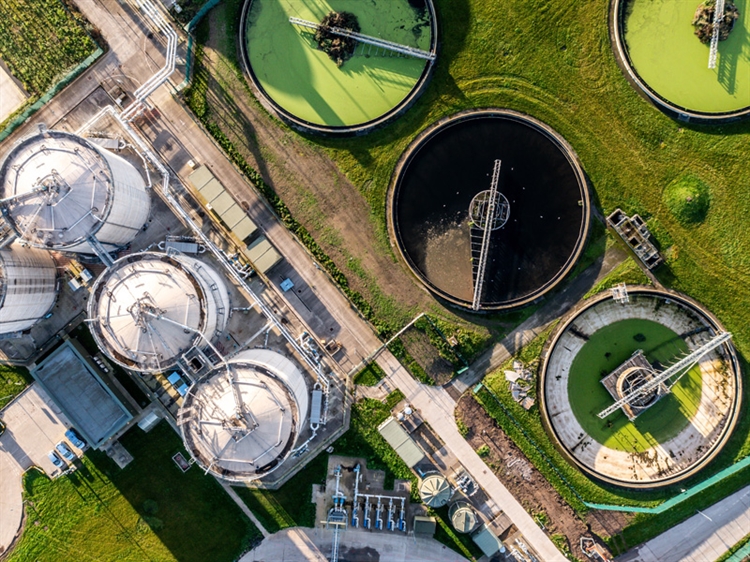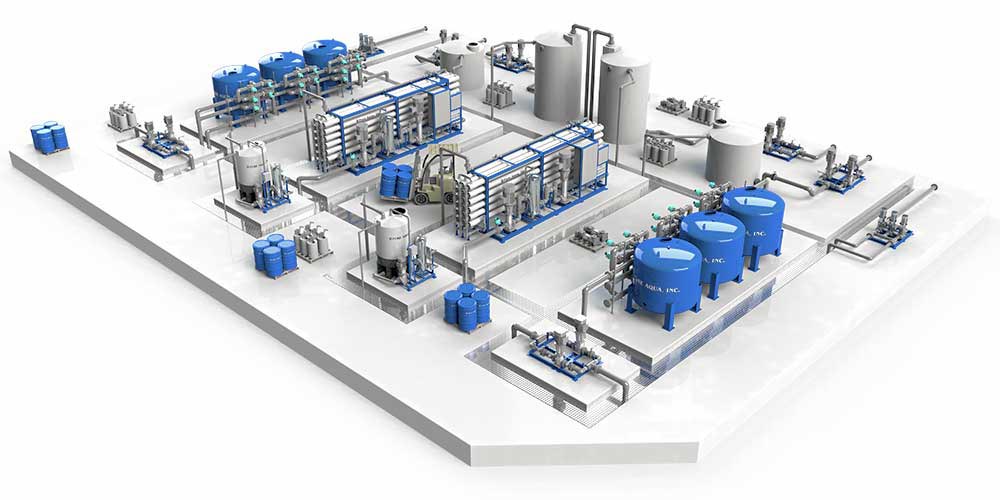Recognizing the Benefits of Ingenious Water Technology Startups in Today's Market
Ingenious water Technology start-ups are progressively recognized for their substantial payments to dealing with water scarcity. These companies develop innovative solutions that boost water top quality and monitoring. By integrating Technology with lasting practices, they not only boost source ease of access but additionally advertise financial growth. The partnership in between federal governments, startups, and areas is vital in this process. Yet, the future of water Technology holds much more potential. What growths could redefine our partnership with this vital source?
The Function of Water Technology Startups in Attending To Water Scarcity
As worldwide water shortage heightens due to factors like climate modification, population development, and contamination, water Technology start-ups become important players in creating ingenious options. These startups concentrate on developing efficient water monitoring systems, progressed desalination strategies, and smart irrigation modern technologies developed to optimize water use. By taking advantage of sophisticated modern technologies such as artificial knowledge and IoT, they intend to monitor water distribution and intake, enabling more lasting techniques.
Furthermore, these start-ups contribute to improving water accessibility in underserved regions, providing budget-friendly services customized to neighborhood demands. Their active nature enables them to swiftly adjust to transforming environmental conditions and governing frameworks, ensuring they continue to be at the leading edge of technology. Cooperations with governmental bodies and developed corporations better intensify their influence, helping with the scale-up of effective efforts. Eventually, water Technology start-ups play a pivotal function in alleviating the impacts of water scarcity and promoting effective water stewardship worldwide.
Ingenious Solutions for Water Top Quality Improvement
Water Technology start-ups are significantly attending to the pressing challenge of water top quality improvement alongside water shortage. These innovative companies establish sophisticated purification systems, bioremediation methods, and chemical therapies created to remove impurities from water sources properly. Some start-ups utilize nanotechnology to develop membranes that uniquely filter out dangerous compounds while preserving important minerals. Others focus on sustainable methods, employing natural processes and products to bring back water top quality.
In addition, real-time tracking services enable individuals to spot toxins and assess water top quality promptly. By incorporating smart sensors and IoT technology, these startups supply beneficial data that encourages sectors and neighborhoods to make informed choices concerning their water usage. The focus on technology not only boosts public wellness but likewise sustains regulatory conformity and environmental sustainability. Therefore, these solutions play an essential duty in guaranteeing accessibility to risk-free and tidy water for diverse populaces.
Enhancing Water Monitoring Via Information Analytics
Utilizing data analytics has transformed water management practices, enabling a lot more reliable source allowance and use. Innovative water Technology startups leverage progressed formulas and real-time information collection to keep an eye on and assess water supply. This strategy permits for precise analyses of water quality, consumption patterns, and facilities performance, causing informed decision-making.
By incorporating anticipating analytics, these start-ups can prepare for potential problems such as leaks or contamination, helping with proactive upkeep and reducing operational expenses. Additionally, data-driven insights encourage energies to optimize their circulation networks, making certain that water reaches customers without waste.
The application of data analytics likewise enhances governing compliance by providing precise coverage and monitoring capabilities. As water scarcity comes to be an increasing concern globally, the function of data analytics in enhancing water monitoring is critical. Overall, these innovations cultivate resilience in water supply while advertising sustainability and performance, eventually profiting neighborhoods and the setting.
Lasting Practices and Environmental Impact
Cutting-edge water Technology startups are significantly focusing on sustainable methods to resolve pushing environmental challenges. By implementing water conservation methods and pollution decrease strategies, these companies intend to reduce their eco-friendly impact. This dedication not just improves source efficiency but likewise adds to the total health and wellness of water ecological communities.
Water Conservation Techniques
Just how can areas effectively reduce their water usage while advertising sustainability? Ingenious water Technology start-ups provide a range of services that concentrate on effective water usage. Methods such as rainwater harvesting systems allow families and businesses to utilize and catch rainfall, notably reducing reliance on municipal water sources. Smart irrigation systems furnished with sensing units decrease water waste by supplying accurate watering schedules based on environmental conditions. Additionally, the application of graywater reusing systems allows for the reuse of water from sinks and showers for irrigation purposes. Public awareness campaigns further enlighten communities on liable water usage, promoting a society of preservation. By integrating these techniques, communities can achieve substantial reductions in water consumption, adding favorably to ecological sustainability.
Pollution Decrease Techniques
As areas confront journalism problem of water air pollution, the adoption of efficient decrease strategies comes to be essential for guarding ecological wellness. Innovative water Technology startups are at the leading edge of developing sustainable practices that significantly mitigate pollution. These start-ups use innovative filtration systems, bioremediation techniques, and wise tracking services to improve water quality. By incorporating environment-friendly materials and promoting closed-loop systems, they minimize waste and decrease hazardous discharges into waterways. In addition, public recognition projects pioneered by these business enlighten communities on contamination avoidance and sustainable methods. Generally, the collaborative efforts of ingenious start-ups contribute to a cleaner atmosphere, showing that Technology and sustainability can exist side-by-side to resolve the urgent challenges of water pollution and advertise long-term ecological well-being.
Economic Growth Driven by Water Innovation
Economic development significantly rests on innovations in water modern technology, with substantial ramifications for task creation. Startups in this market not just establish sustainable source administration services but also lead the method for new employment possibilities. As these business flourish, they add to a more durable economy while resolving crucial water challenges.
Job Production Opportunities
Although the difficulties of water scarcity and pollution impend huge, ingenious water Technology start-ups are becoming essential players in cultivating task development and driving economic development. By establishing innovative services for water monitoring and therapy, these startups contribute to the creation of diverse job opportunity across various markets. Functions in engineering, r & d, and sales are broadening, as the demand for skilled professionals expands to sustain brand-new modern technologies. Additionally, regional economic situations profit as startups commonly resource materials and services from nearby companies, producing a causal sequence of job production. As these companies scale, they attract financial investments, additionally reinforcing the labor force and stimulating regional financial tasks. Inevitably, the surge of water Technology start-ups signifies a promising avenue for lasting task development.

Sustainable Resource Management
Cutting-edge water modern technologies not only resolve pressing ecological concerns yet also function as catalysts for sustainable resource management and economic development. By enhancing water use and boosting efficiency, these modern technologies allow markets to minimize waste and reduced functional expenses. Startups in this field develop options for water purification, reusing, and conservation, which are crucial in combating water scarcity and guaranteeing lasting accessibility. The fostering of such advancements advertises a round economic situation, where resources are recycled and repurposed, boosting general performance. As companies buy sustainable methods, they add to job creation and local development. Consequently, the junction of water innovation and sustainable source management promotes financial resilience while addressing environmental obstacles dealt with by areas worldwide.
Cooperation In Between Startups, Governments, and Communities
As water scarcity ends up being an increasingly pressing global issue, partnership in between startups, federal governments, and areas becomes a necessary technique for developing reliable solutions. Startups bring fresh point of views and innovative technologies, while federal governments can give regulatory frameworks and funding support. Areas play a vital function in determining regional challenges and carrying out remedies on the ground.
Effective collaborations commonly entail shared resources and knowledge exchange, allowing stakeholders to leverage each various other's staminas. Districts can team up with start-ups to pilot water-saving modern technologies, while start-ups gain valuable comments and understandings from community participants. These collective initiatives can improve public awareness and foster a culture of sustainability.
Additionally, lining up the goals of all events included increases the capacity for long-term success. By collaborating, startups, governments, and communities can produce a much more resistant water monitoring system that deals with immediate requirements while likewise preparing for future difficulties. This synergy is vital in cultivating development and guaranteeing sustainable water accessibility for all
Future Fads in Water Technology and Their Ramifications
Arising trends in water Technology are poised to reshape the way cultures manage and preserve this crucial source. Significantly, technologies such as smart sensors, IoT-enabled tools, and AI-driven analytics are boosting water high quality tracking and predictive upkeep. These innovations allow for timely treatments, minimizing waste and ensuring sustainable use.
Additionally, decentralized water treatment services are getting grip, enabling areas to manage their supply of water even more individually and successfully. This change cultivates durability versus climate irregularity and population development.
In addition, the integration of renewable resource sources in water Technology lessens the carbon footprint of water treatment processes.
As these patterns continue to advance, they bring considerable ramifications for regulatory frameworks, financial investment approaches, and neighborhood engagement. Stakeholders need to adapt to these changes to harness the full potential of innovative water modern technologies, inevitably bring about boosted water safety and sustainable resource administration for future generations.

Often Asked Concerns
How Do Water Technology Startups Secure Financing for Their Technologies?
Water Technology startups protected financing with various channels, consisting of financial backing, federal government gives, angel investors, and crowdfunding platforms. They typically existing compelling organization models and innovative options to bring in financial backing for their tasks.
What Are the Typical Difficulties Encountered by Water Tech Startups?
Water technology startups generally encounter difficulties such as securing financing, navigating regulatory requirements, scaling modern technologies, competitors from well established companies, and market approval (Water Technology Startups). These barriers can hinder their development and advancement potential in the market
Exactly how Do These Start-ups Determine Their Impact on Regional Areas?
Water technology start-ups typically measure their effect on local neighborhoods with metrics such as enhanced water quality, raised availability, cost financial savings, community interaction responses, and environmental sustainability indications, ensuring their solutions successfully attend to neighborhood water challenges.
What Function Do Consumers Play in Supporting Water Technology Innovations?
Consumers play a crucial role by proactively taking on water Technology innovations, providing feedback, and promoting for sustainable techniques. Their choices influence market need, driving start-ups to innovate additional and address regional water difficulties more info properly.
Exist Particular Laws Affecting Water Technology Startups?
Yes, details regulations considerably influence water Technology start-ups - Water Technology Startups. These regulations incorporate ecological criteria, safety and security protocols, and financing opportunities, which can either assist in technology or pose challenges, ultimately forming the industry's landscape and affordable dynamics
Ingenious water Technology startups are progressively acknowledged for their substantial payments to dealing with water scarcity. These start-ups focus on producing reliable water monitoring systems, advanced desalination methods, and clever watering modern technologies developed to maximize water usage. Water Technology start-ups are significantly addressing the pressing obstacle of water top quality renovation together with water shortage. Cutting-edge water Technology start-ups supply an array of remedies that concentrate on reliable water usage. The challenges of water scarcity and air pollution impend large, innovative water Technology start-ups are emerging as key gamers in fostering task production and driving economic development.